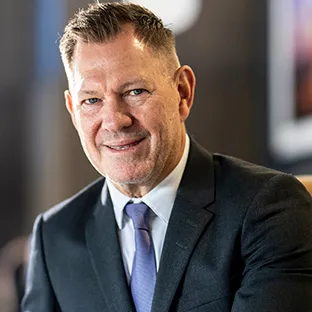Mallorca holiday warning: “The Balearics is walking a thin red line when it comes to pricing, we could eventually go bust…”
By Humphrey Carter
Copyright majorcadailybulletin

Pedro Fiol, the president of Aviba, the Association of Balearic Travel Agents, dropped a bombshell earlier this summer when he said “a week in Playa de Muro costs more than in the Maldives or Thailand”. Granted, he was referring to the domestic Spanish market, claiming that the number of Spanish travellers has fallen by more than 20% due to high prices.
But Fiol added that not only has the number of Spanish nationals spending their summer holidays in Mallorca declined, but fewer British tourists were coming, opting instead for more economical destinations in the Mediterranean basin, such as Morocco or Egypt. He made that statement in June and this week told the Bulletin that after a very uncertain start to the season regarding how the British market was going to perform over the summer, the UK market has performed much better than expected and to a certain extent saved the season.
Bit scared by the British market
“We saw a slowdown early on, we were a bit scared because we need the British market, along with the Germans. It is one of the two key pillars of the Balearic tourist industry and, fortunately, the UK market picked up and has proved very good in the end. September is looking very strong and the forecast for October is encouraging as well.
“At one point, we were looking at over capacity in the UK market due to demand being so high.
“But the German market has taken a dip and we’ve had to look to other markets, mainly Eastern Europe, in particular Poland and Czechia to try and fill that gap, although the French market has performed very well this year. I guess being neighbours it’s an easy destination to get to.
“And I can say that the season, however turbulent it’s been, has been stable. The sector is forecast to close the season with growth in turnover of between 4% and 6% compared to 2024. However, the number of bookings remains stagnant compared to last year, which means we will have to wait for the balance sheet for the coming months to confirm whether production will reach or exceed last year’s levels.
“The increase in revenue is largely due to the increase in the cost of tourism products. This may be positive in the case of package holidays, but we must not forget that it is sometimes more profitable to sell a larger number of packages than to make a few sales at very high prices,” he said.
“One of the main obstacles has been the economic troubles much of Europe has been facing – rates of inflation in the UK and Germany for example – but I think global economies are struggling so that obviously influences holiday and spending habits.
Decline in spending
“We’ve seen a decline in spending outside of hotels – bars, restaurants, beach concessions and the tourism food chain across the board has suffered. Visitors have held back and that’s not a good sign moving forward. I’ve told you before, we can’t continue hiking prices by 20 percent or more every year while offering the same products. And I know that while hoteliers will increase their rates again for next year, it’s going to be minimal,” he stated.
“I think the main problem is that as we came out of Covid and everybody wanted to travel again, get out of their homes and enjoy some freedom after lockdown. There was a travel boom which the tourist industry, having obviously suffered severe losses, wanted to cash in on, primarily by hiking their prices.
“However, Covid is now history and we need a reality check. There is a lot of competition out there, new emerging destinations which are cheaper for obvious reasons. Wages are lower, operating costs are less, produce is cheaper etc., so they can afford to offer cheaper holidays. But what they can’t offer are the high standards of quality and services the Balearics is famous for.
People will look elsewhere
“But if you can’t park near a beach, can’t even find room on a beach, have to use packed public transport and negotiate traffic congestion while being expected to pay top prices, people will look elsewhere. And we, the Balearic tourist industry, have to be realistic. We need to have a strategy and a roadmap for the future and that is something that we’re lacking.
“The authorities have been eerily quiet this summer, and what worries me is that, at a time when we’re facing mounting competition, they are pulling back on promoting the Balearics as a tourist destination. We can’t shy away from the fact we are a sun and beach destination. Yes, the season is getting longer with the months of May, June, September and October working well. But at the end of the day we’ve got to be full in July and August. These are the two months which make or break the season whether you like it or not,” he stressed. “And we have to realistic about who comes to the Balearics; this applies to the domestic and international markets. The majority are middle class. Yes, there is a small niche luxury market, but the bulk of the tourists are not from the Arab Emirates, for example, for whom money is not a problem.
We need a long-term strategy
“People are watching what they spend, be they coming from the mainland or the UK, for example. And we’ve witnessed that with the case of the Germans this year. And this is where the Balearics has got to tread very carefully. We’re walking a very thin red line when it comes to pricing, and if we’re not careful we could go bust – people won’t come and those who do will spend even less. Then what do we do? Come on, tourism is in the DNA of the Balearics, it’s our main industry, it has been for decades and that is why we need a long-term strategy.
“We need to focus on providing maximum value for money while acknowledging, appreciating and respecting why the majority of people come to the Balearics on holiday. We can’t afford to have a free-for-all, a free bar, where everything goes. The illegal rentals have been a killer. It was not long ago when tourism was based on the majority of people coming on a package holiday with tour operators and a few renting villas or chalets out in the country.
“Now, despite the rhetoric on controlling illegal rentals etc., for many residents it’s like living in a hotel.
“Let’s say you live in an apartment or a house in a village, town or the centre of Palma, you haven’t got a clue who your neighbours are any more, they come and go. You never know who’s in the room next door,” he said. “So this is an issue which has to be dealt with properly,” he added. “We can’t continue with an ‘anything goes’ approach to tourism, it’s not something the Balearics can afford to gamble with,” he warned.
“There is only so much people are prepared to pay, especially when what’s on offer is getting increasingly broader and attractive. If the Balearics is not careful people will decide enough is enough and go somewhere else,” he said. “But thanks to technology, we as travel agents and receiver companies in the Balearics are able to work very closely with the tour operators and quickly adapt and respond to sudden market changes. But we need full governmental support.
“Fortunately this year the protests against the impact of mass tourism and government’s housing policies have been far fewer than last year. And, to be honest, the impact they have had on the industry has been minimal. Yes, countries like those of Scandinavia, which are rather more sensitive to these issues than others, have taken a slight hit as a result. But for the most part, and let’s all be honest here, people going on a package holiday don’t really care about the domestic political issues of their destinations – unless it’s a hostile country locked in some form of conflict. They simply want to go on holiday and get good value for money. But again, little has been officially said to try and offset any potential damage the protests could have caused, considering the amount of international press coverage they’ve received,” Pedro said.
“From a Mallorcan point of view, I have local clients going to Egypt, Senegal, China, Thailand or the Dominican Republic, for example. They’re not worried about the domestic political problems, they want an exciting experience for a holiday. And I think that the official silence has been because the powers that be think that by letting anything go, everybody’s going to be happy. Well they’re not and we’re worried about the future.
Looking ahead
“Next season may be as good as this year, but looking further ahead we need to start drawing up a plan and decide where we want to go and how we’re going to do it. Like I said, there’s a post-Covid hunger to go on holiday, but not everybody’s got the money to spend in resort, hence why restaurants, bars and shops are struggling. I think it will be the same next year unless everyone calms down. That said, we never know what’s gong to happen next geopolitically, so we always have to be on our guard,” Fiol stressed.
“The trouble is that Mallorca has lost a bit of control of the market, what it offers. There is so much ‘on sale’ if you like, from sporting tourism, nautical, activity, well-being, the Tramuntana, culture, gastronomy, off-season, residential, urban, weekend breaks … the list goes on. We can’t simply sell everything, that will only lead to more massification and confusion in the market. We need to sit down and redefine what tourism in Mallorca is. Reach a clear decision on what we want and then sell it properly. We need to adapt to the changing market while also keeping a very close eye on competing and emerging destinations. We need to have a clear roadmap for the future,” he said.
Number one global destinations
“Furthermore, what we can’t allow to happen is for airlines like Ryanair to dictate how we operate. If Ryanair feels that operating in certain parts of Spain is not profitable enough for them, so be it.
“Out of season, the airline offers very little for Spaniards. Yes, they cover the obvious domestic routes which other airlines cover but they’re not offering us in the Balearics, for example, flights to new and different destinations. So if they don’t want to operate in the summer, then another airline will fill their slots; it’s as simple as that because Spain and the Balearics are number one global destinations,” he said.
“To be honest, considering the amount of tourists the Balearics does attract, and has attracted over the many years it’s been a market leader, prices should be cheaper,” Fiol stated. “The dynamics of the industry are changing and if we keep on putting prices up, people will come for fewer nights, spend less time and money each year. The only good thing is that more may come out of high season, but then how will the market respond? Will more hotels and resort businesses stay open during the winter? How cost effective will it be? 85% of tourists who come to the Balearics are middle class and we’re always the first to get hit by all forms of economic crisis so it’s time to get realistic,” he said.



